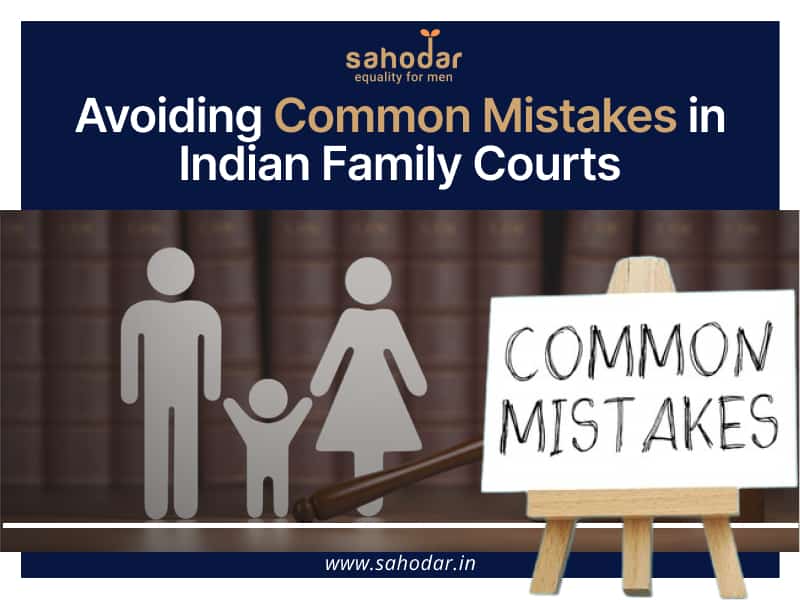Matrimonial cases in Indian Family Courts are inherently complex, encompassing a myriad of legal intricacies that demand meticulous attention. Parties involved in such disputes often encounter common pitfalls that can significantly impact the outcome of their cases. In this comprehensive examination, we delve into the significant legal details surrounding matrimonial litigation in India, highlighting prevalent mistakes and providing insights into how these can be avoided for a more favorable resolution.
Legal Framework for Matrimonial Disputes in India
Matrimonial cases in India fall under the purview of various statutes, including the Hindu Marriage Act, 1955; the Special Marriage Act, 1954; and the Muslim Personal Law (Shariat) Application Act, 1937. These statutes govern matters such as marriage, divorce, maintenance, child custody, and property division, each with its legal provisions.
Importance of Comprehensive Documentation
The initiation of matrimonial litigation necessitates a meticulous compilation of essential documents. These include the marriage certificate, financial records, evidence of shared assets, and any documentation related to issues such as domestic violence or infidelity. Insufficient or incomplete documentation can impede the legal process and weaken the case’s foundation.
Emotional Decision-Making and Its Legal Implications
Emotional decision-making is a pervasive issue in matrimonial cases. While emotions are understandably heightened, decisions guided solely by emotional impulses can have legal ramifications. Family law demands a rational and legal approach, emphasising the importance of informed decision-making. Seeking legal counsel is pivotal in balancing emotional well-being and adherence to legal considerations.
Alternative Dispute Resolution (ADR) Methods
A significant oversight in marital disputes is neglecting Alternative Dispute Resolution (ADR) mechanisms. Mediation, conciliation, and counselling allow parties to resolve disputes amicably without resorting to protracted court battles. The Code of Civil Procedure, 1908, mandates pre-litigation mediation attempts in family matters. Ignoring these avenues may result in prolonged legal proceedings with increased emotional and financial tolls.
Non-Compliance with Family Courts Orders
Adherence to court orders is paramount in family law cases. Noncompliance can lead to contempt of court charges, whether related to child custody arrangements, alimony, or property division. The Contempt of Courts Act of 1971 empowers the courts to take strict action against those who fail to comply with their directives. Adhering strictly to court orders is imperative for maintaining a positive standing in the eyes of the judiciary.
Factual Integrity and Consequences of Misrepresentation
Honesty and transparency are foundational principles in family law proceedings. Parties must resist exaggerating or misrepresenting facts, as the consequences can be severe. Section 125 of the Indian Evidence Act of 1872 provides the framework for the admission and exclusion of evidence in legal proceedings. Misrepresentation can undermine the litigant’s credibility and erode the court’s trust, impacting the overall case adjudication.
Legal Representation
The decision to navigate matrimonial litigation without legal representation is a common misstep. The intricacies of family law require specialised knowledge, and a seasoned family law attorney can provide invaluable guidance. The legal representative ensures rights protection, strategic planning, and presenting a compelling case in court. Section 13-B of the Hindu Marriage Act even mandates counselling before filing for divorce, emphasising the importance of professional guidance.
Children’s Best Interests and Legal Considerations:
Child custody matters are central to many matrimonial disputes. The legal framework prioritises the best interests of the child. The Guardians and Wards Act of 1890 guides the court in determining custody arrangements. Parties must recognise that decisions impacting children’s lives will be closely scrutinised by the judiciary. A failure to prioritise the children’s well-being can adversely affect the final custody determination.
Conclusion
Matrimonial cases in Indian Family Courts demand a holistic understanding of the legal framework, strategic planning, and a commitment to legal propriety. By avoiding common mistakes such as incomplete documentation, emotional decision-making, and non-compliance with court orders, litigants can enhance their chances of a favourable outcome. The significance of legal representation, adherence to factual integrity, and prioritising children’s best interests cannot be overstated in navigating the intricate landscape of family courts proceedings in India. A reasonable approach, coupled with professional legal guidance, is instrumental in securing optimal results within the parameters of Indian family law.

